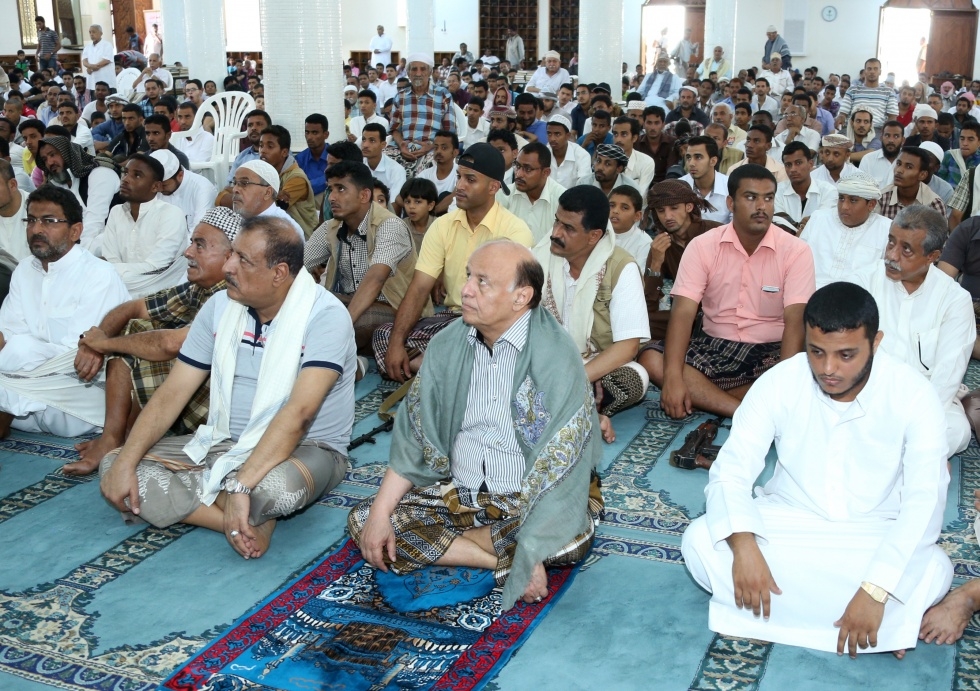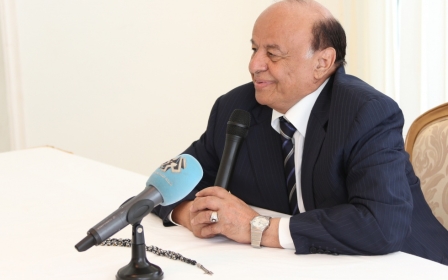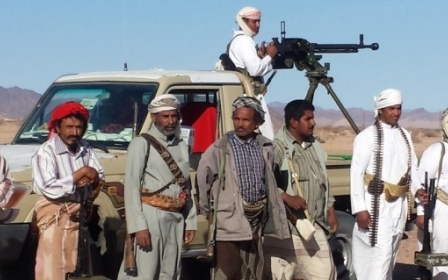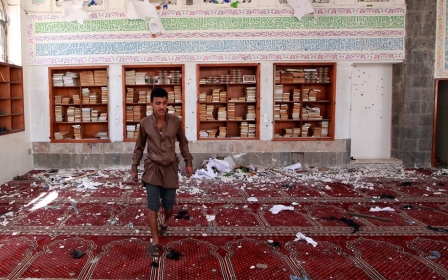Hadi: Bombings seek to drag Yemen into 'chaos'

Yemen's president said suicide bombings that killed at least 142 people at mosques were aimed at dragging the country into "chaos, violence and internal fighting".
The Islamic State (IS) group claimed responsibility for Friday's attacks on two mosques in the capital Sanaa and the Houthi militia's northern stronghold of Saada.
President Abd Rabbuh Mansour Hadi has taken refuge in the southern city of Aden having escaped house arrest in the Houthi-controlled capital last month.
In a letter to the families of the victims, which also included 351 wounded, he condemned the attacks as "terrorist, criminal and cowardly".
"Such heinous attacks could only be done by the enemies of life," who want to drag Yemen into "chaos, violence and internal fighting," said the letter released by his office late on Friday.
"Shiite extremism, represented by the armed Houthi militia, and Sunni extremism, represented by Al-Qaeda, are two sides of the same coin, who do not wish good and stability for Yemen and its people," Hadi wrote.
The Houthis seized Sanaa in September, and have since tightened their grip on government installations, aided by forces loyal to former president Ali Abdullah Saleh.
But in their push to widen their control zone to the south, they faced a fierce resistance by Sunni tribes as well as Al-Qaeda militants.
The killings were the first claimed by IS in Yemen and represent a strong show of force by the group in a country where rival Al-Qaeda is the most prominent militant organisation.
Al-Qaeda, however, swiftly distanced itself from Friday's bombings, insisting it does not target mosques.
'Agents backed by Iran'
On Thursday, Hadi accused what he described as "agents backed by Iran" of attempting to stage a coup against him in the southern province of Aden, which he has declared the temporary capital of Yemen, given that the Houthis still control Sanaa.
Hadi said Aden's forces had succeeded in foiling a bid by these "agents" to stage a coup in Aden by occupying the airport of the southern province.
"The success to thwart this cheap attempt reflected the unity between the army, policemen and vigilantes," Hadi said in a statement.
He said attacks on the airport of Aden and airstrikes against the presidential palace in the southern province on Thursday revealed that the "other side" did not want to reach a settlement to the crisis in Yemen through dialogue, implicitly pointing the finger at the Shiite Houthi militia.
Earlier in the day, pro-Hadi forces managed to liberate Aden Airport from the hands of special forces opposed to the Yemeni leader, which controlled it earlier.
The presidential palace in Aden was also struck by two airstrikes, but according to the governor of Aden Abdel-Aziz Habtour, the jets did not succeed in hitting their targets.
The warplane which carried out the airstrikes on Aden's presidential palace earlier on Thursday was flown by pilots affiliated with the Shiite Houthi militia, a Yemeni Air Force source has said.
"The plane took off from Sanaa's al-Dailami airbase, which is under Houthi control," the source, requesting anonymity, told the Anadolu Agency.
Middle East Eye propose une couverture et une analyse indépendantes et incomparables du Moyen-Orient, de l’Afrique du Nord et d’autres régions du monde. Pour en savoir plus sur la reprise de ce contenu et les frais qui s’appliquent, veuillez remplir ce formulaire [en anglais]. Pour en savoir plus sur MEE, cliquez ici [en anglais].




